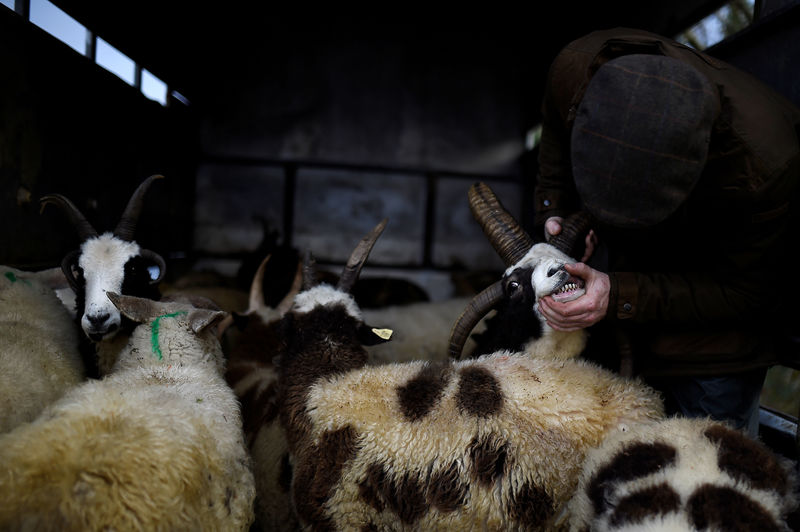By Padraic Halpin and Amanda Ferguson
DUBLIN/BELFAST (Reuters) - Plans by Britain to levy import tariffs on beef, lamb, pork and dairy products if it crashes out of the EU without a deal would be potentially disastrous for Irish farmers, Agriculture Minister Michael Creed said on Wednesday.
Britain laid out plans to temporarily eliminate tariffs on many goods and keep the border between Ireland and Northern Ireland free of customs checks as lawmakers prepared to vote on Wednesday on whether it should leave the European Union without a transition agreement to minimise economic disruption.
But protections would remain in place for, among others, car makers and meat and dairy farmers.
Ireland's 3.1 billion euros (£2.66 billion) of trade in food and live animals with Britain last year represented over 40 percent of all exports in that category. The Irish Farmers' Association (IFA) estimated the additional cost to beef producers alone from the tariffs would be almost 800 million euros.
"This is potentially a disaster, yes," Creed told national broadcaster RTE.
"We're involved now in a very detailed analysis of what the implications are (and) ...it's not a pretty picture... But this is in the event of no deal and we're not there yet."
IFA President Joe Healy said in a statement that Ireland's most exposed sectors, particularly beef, "simply will not survive" the kind of tariffs being talked about and that it would have a devastating effect on the rural economy.
Creed said officials from his department were in Brussels on Wednesday for further discussions on interventions that would be required in response.
The European Commission President has promised to assist Irish farmers and other businesses under a no-deal Brexit.
"FATAL" FOR N.IRISH FARMERS
London said Northern Ireland would not be subject to the tariffs, a feature the province's Federation of Small Businesses said was likely to lead to a rush of Irish exporters using Northern Ireland as a backdoor to avoid the British duties.
Effectively handing the EU such unfettered access when Northern Irish producers would not be able to freely export to the bloc would deal a "fatal blow" to indigenous food production in the United Kingdom and in particular Northern Ireland, Northern Ireland's Agri-Food Alliance warned.
The Confederation of British Industry Northern Ireland (CBI NI) was similarly unimpressed, saying the scheme would leave Ireland with no option but to apply EU tariffs on all goods coming across the border.
"This desperate and ill-thought-through trade measure will create all the conditions for a hard border in Northern Ireland," CBI NI Director Angela McGowan said in a statement. "The proposals are confused at best, disingenuous at worst."
The British government said the border arrangements can only be temporary and that it would seek to enter urgent discussions with the European Commission and Dublin to agree long-term measures to avoid a hard border.
Ireland's position -- that it will not make plans for managing the currently seamless border in a no-deal Brexit until such an outcome emerges -- remains unchanged, European Affairs Minister Helen McEntee told RTE.

She said London's temporary plan to keep Northern Ireland aligned with EU-member Ireland replicated what was already on offer in the Irish "backstop" arrangements opposed by British lawmakers.